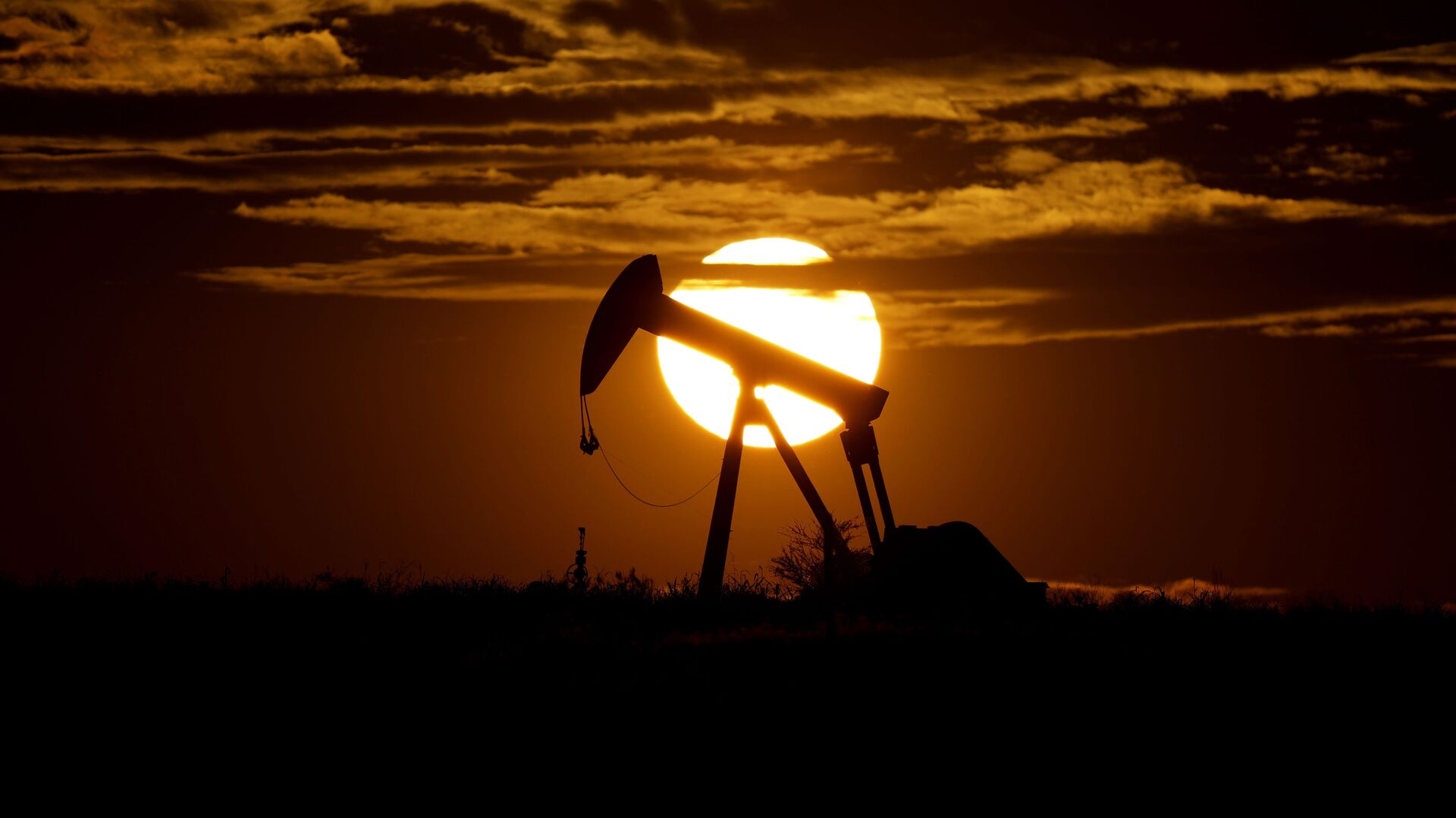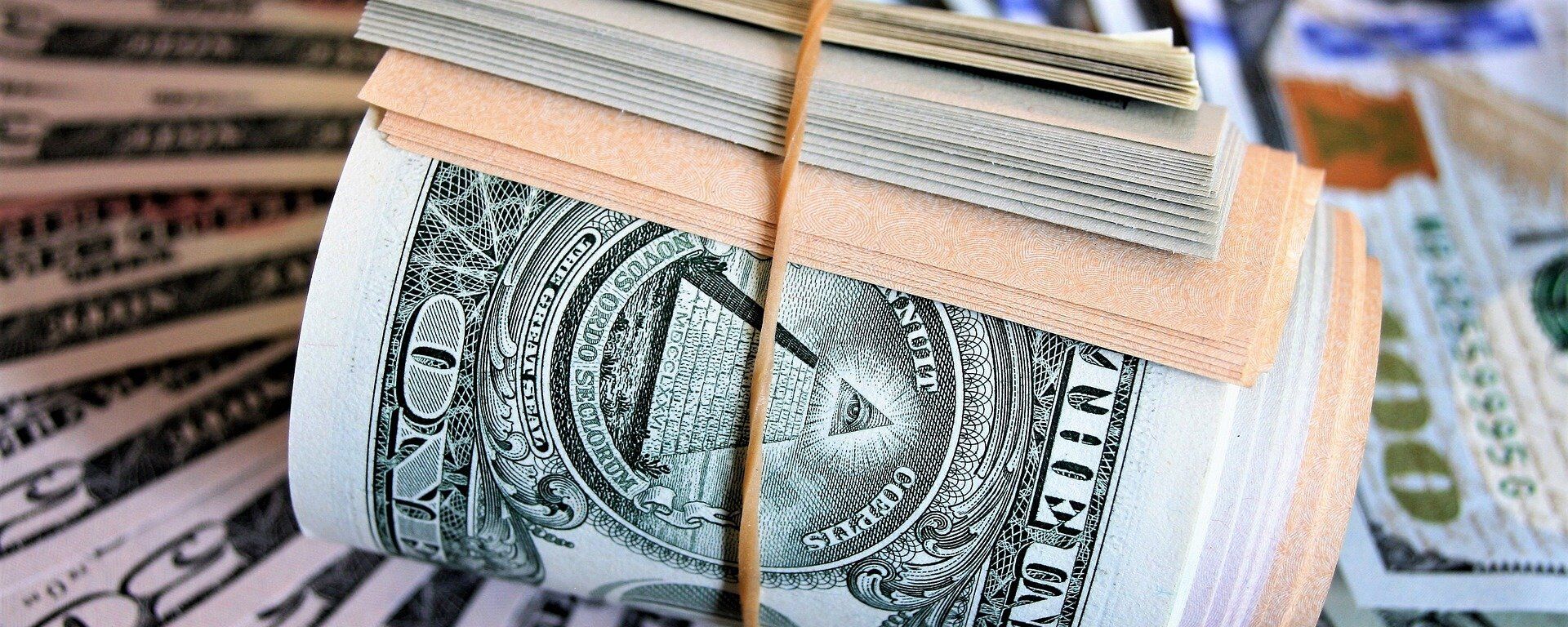https://sputnikglobe.com/20221226/how-oil-prices-affected-the-global-economy-in-2022-1105801708.html
How Oil Prices Affected the Global Economy in 2022
How Oil Prices Affected the Global Economy in 2022
Sputnik International
How did oil prices affect the world's economy in 2022 and what was responsible for galloping inflation? The short answer is: not Russia's Ukraine operation.
2022-12-26T16:35+0000
2022-12-26T16:35+0000
2023-03-05T11:22+0000
sputnik explains
us
europe
opinion
russia
oil
recession
us federal reserve
china
global economy
https://cdn1.img.sputnikglobe.com/img/07e5/03/04/1082257498_0:54:3446:1992_1920x0_80_0_0_059838c27c1a65bfb3b0992164c14e14.jpg
Global oil prices started soaring well before the beginning of 2022, triggered by various factors which set the stage for major developments this year.First: the COVID pandemic resulted in a crude prices slump as oil demand declined due to the coronavirus-related lockdowns and travel restrictions in 2020. Storage facilities and oil tankers were filled up and it was unclear where to store excess oil. The development sent petroleum prices down with West Texas Intermediate (WTI) – the benchmark for US crude – futures sliding to a negative $37.63 per barrel on April 20, 2020, for the first time in history. North American oil companies and OPEC Plus group of crude producers announced sizable production cuts.When businesses started to re-open across the globe in late 2020 and the beginning of 2021, disrupted supply chains and the incapability of oil producers to quickly adjust to the market changes led to fuel shortages, sending prices higher.Second: western governments had been decreasing investments in fossil fuel production for quite a while seeking to reach carbon-zero emissions by 2050. Large European banks cut financing to fossil fuel companies by 27.6% in 2021, at the time when resuming economic activities needed petroleum the most. Barclays' financing to oil, gas and coal companies plummeted 30.1% to $19.6 billion in 2021 and HSBC saw a 26.8% decline to $18.0 billion, according to S&P Global. Meanwhile, on the other side of the pond, newly sworn-in President Joe Biden also declared cuts and limits on the oil extraction and suspended the construction of Keystone XL (KXL) tar sands pipeline which was annulled by TC Energy on June 9, 2021.The aforementioned factors sent major oil benchmarks higher with Brent crude jumping over 60% last year, hitting a three-year high of $86.70 on October 25, 2021.Rising oil prices drove up transportation costs, thus fanning inflation, along with supply chain problems and spiking food costs. The emerging trend started to bite industrialized and developing countries alike.The US, EU and UK saw a spike in inflation in October 2021 well above the 2% target and continued to rally. The US Consumer Price Index for All Urban Consumers – the nation's inflation gauge – jumped 6.2% from October 2020 to October 2021; the Eurozone and the UK's inflation rates soared over 4% at the time.In November 2021, the White House announced the release of 50 million barrels of oil from the country's strategic reserves and called on allies to do the same. However, it didn't help at the time: the nation's January 2022 CPI indicated that year-over-year inflation rose to 7.5%, its highest rate in 40 years.How Western Sanctions Accelerated Oil Prices in 2022As oil prices and inflation continued to increase in the beginning of 2022, a new factor added insult to injury. Following the beginning of Moscow's special operation in Ukraine on February 24, the G7 and their allies resorted to sweeping sanctions against Russia's banking, logistics and energy industry, to name but a few, starting from March. While the US was the first to completely halt the importation of oil from Russia, the UK and EU started to phase out their purchases of Russian crude (their ban came into force in full on December 5, 2022).The problem is that Russia remains the third-largest oil producer in the world and the second-largest exporter of the commodity. And when it comes to all oil products, Russia is the first exporter. The nation's output in January 2022 amounted to 11.3 million barrels per day. About 60% of Russia’s crude exports went to the EU, representing roughly a third of the bloc's member states oil imports.The International Energy Agency (IEA) estimated at the time that by May 2022, three million barrels per day of Russian oil output, representing almost 3% of the world’s production, could be removed from the global oil market.On February 28, Brent crude went through the roof and mounted over $100 per barrel. On March 8, 2022, Brent futures settled near $128 a barrel in London, while WTI gained 3.6% to settle over $123. As global oil prices fluctuated around $100 per barrel, inflation turned into an acute global problem in May. An analysis of inflation across 111 countries carried out by Deutsche Bank at the time indicated that US rates (8.6%) were in the middle of the pack. The median rate of 7.9% year-over-year inflation more than doubled from 3.0% one year ago, largely due to spiking energy prices. May rates indicated that France's year-on-year inflation reached 5.8%, Germany's rose to 7.9%, the Netherlands’ mounted to 8.8%, while in the Baltic states it soared as high as 20%.Interest Rates HikesIn March, the US Federal Reserve started gradual interest hikes in order to attempt to tame inflation. The European Central Bank (ECB) followed suit in July, raising the key interest rate for the first time in 11 years. For its part, the Bank of England (BoE) resorted to the measure since the beginning of the year.However, aggressive rate hikes by nation-issuers of major reserve currencies backfired on vulnerable economic zones of developing countries, according to the International Monetary Fund (IMF). Prior to the move, Kristalina Georgieva, managing director of the IMF, warned the Davos Summit in January 2022 that US interest rate hikes could cripple the global economy. She noted at the time that countries with higher levels of dollar-denominated debt would be hurt the most, adding that two-thirds of low-income countries were either in "debt distress" or at risk of falling into it.On the other hand, economic experts warned that the US and its western allies were running the risk of plunging themselves into recession, as interest hikes have increased borrowing rates and slowed down the industrialized economies.The US entered a technical recession earlier this year. The European Commission admitted in November that the Eurozone and most EU countries would face recession in the last quarter of 2022. Meanwhile, the UK's economy contracted a revised 0.3% against the 0.2% decline initially estimated from July to September, according to the Office for National Statistics' latest data.Price Cap on Russian OilIn order to reshuffle the economic environment, the G7 came up with the price-capping scheme targeting Russia in June 2022.The plan prohibited EU and UK companies from transporting or insuring ships carrying crude oil from Russia to anywhere in the world – unless the buyer pays a price below the proposed price cap. The grand design was meant to kill two birds with one stone: first, to deal a heavy blow to Moscow’s finances; second, to reduce inflationary pressure."A price cap on Russian oil is one of our most powerful tools to address the pain that Americans and families across the world are feeling at the gas pump and the grocery store right now," US Secretary of the Treasury Janet Yellen asserted to reporters ahead of the G20 foreign ministers' July meeting in Bali.On December 5, a $60 price cap on Russian oil came into force. Starting from February, Russia's petroleum products will also be subjected to the price cap. Additional conditions secured by industrialized nations include a mechanism to reconsider the price cap limits every two months. Any resetting of the cap should leave it at least 5% below average market rates.Russia signaled that it will not sell oil to countries implementing the measure and is ready to slash the production of crude. Moscow warned against implementing practices which undermine free market rules and send the global economy into disarray. Simultaneously, the nation resorted to beefing up its own tanker fleet, instrumentalizing its own insurance companies and shifting to national currencies in oil and gas settlements.Oil Prices Have Fallen, For NowBy late November oil prices plummeted to $83 (Brent) and $77 (WTI) per barrel due to a number of reasons, as Dr. Gal Luft, co-director of the Institute for the Analysis of Global Security and a senior adviser to the United States Energy Security Council, told Sputnik at the time.First: is the slowdown in the global economy and reduced global demand amid the expectation that China was not going to end its zero-COVID policy any time soon.Second: countries have completed their adjustments to the new geopolitical situation by storing oil in strategic reserves while traders, shippers and paymasters have made their adjustments to the sanctions and are now more able to ship crude at ease.Third: shippers have more or less completed their end-of-year pre-holiday shopping season purchases of manufactured goods and now there is a typical slowdown in international shipping.Fourth: when it comes to the US, American refiners were pressured to lower profits and limit exports causing a surplus in the domestic market.Nonetheless, the expert warned that Brent and WTI benchmark could once again go above $100 if Russia, the second largest oil exporter, will walk the talk and reduce oil output, and if China accelerates its economic development full throttle after easing COVID-related restrictions.Earlier, the club of 23 oil producers met on December 4 to discuss the course on output policy. They agreed to stick to the existing policy of reducing oil production by two million barrels per day until the end of 2022. The group's next meeting in February 2023 could result in further corrections to the energy market.De-Globalization TrendAnti-Russia sanctions and further hits to global supply chains are likely to result in de-globalization of the world's economy, western experts believe. They project that the world economy is set to split into blocs in the future with each of them becoming more self-reliant.Less economic interconnection will result in domestic companies and industries gaining more power and greater protection from their respective states. All in all, the global economy of the 2020s will look quite different from the world of the previous three decades, according to the experts. While they are pinning the blame for the new trend on China, Russia, Brexit, ex-US President Donald Trump, Turkey's Recep Tayyip Erdoğan and Hungary's Victor Orbán, the US and the EU appear to be at the forefront of the de-globalization process. In addition to trying to cut Russia off from the world economy, Washington and Brussels have recently resorted to outright protectionist measures, including the US' Inflation Reduction Act (IRA), the EU's carbon border tax, and bans on semiconductor technologies for Chinese companies.While Russia is re-orienting its supply and shipment routes, the western economy is slowing down. Time will tell how the global economic decoupling will pan out.
https://sputnikglobe.com/20221222/enough-is-enough-why-wests-price-capping-is-wake-up-call-for-developing-countries-1105695893.html
https://sputnikglobe.com/20221223/russia-ready-to-cut-oil-production-as-response-measure-to-oil-price-cap-deputy-prime-minister-says-1105716023.html
https://sputnikglobe.com/20220618/crisis-decades-in-the-making-why-feds-rate-hikes-cant-save-the-day-for-us-economy--1096440903.html
https://sputnikglobe.com/20221209/new-master-of-seas-g7-price-cap-vs-russian-oil-fleet-insurance-companies--northern-sea-route-1105271559.html
https://sputnikglobe.com/20221220/why-eu-carbon-border-tax-will-lead-to-market-destabilization-higher-prices--inflation-1105643738.html
russia
china
Sputnik International
feedback@sputniknews.com
+74956456601
MIA „Rossiya Segodnya“
2022
News
en_EN
Sputnik International
feedback@sputniknews.com
+74956456601
MIA „Rossiya Segodnya“
Sputnik International
feedback@sputniknews.com
+74956456601
MIA „Rossiya Segodnya“
how oil prices affect economy in 2022, oil output contracted, what's behind oil prices spike, western sanctions on russian oil, g7's price cap on russian oil, did interest rate help against inflation, interest hikes provoked recession,
how oil prices affect economy in 2022, oil output contracted, what's behind oil prices spike, western sanctions on russian oil, g7's price cap on russian oil, did interest rate help against inflation, interest hikes provoked recession,
How Oil Prices Affected the Global Economy in 2022
16:35 GMT 26.12.2022 (Updated: 11:22 GMT 05.03.2023) Moscow has warned that it will not supply oil at prices artificially imposed by the Group of Seven (G7), the EU and Australia, in violation of free market rules. Moscow stands ready to reduce oil production in response to the price cap. So how have oil prices affected the world's economy during 2022, and what is to come?
Global oil prices started soaring well before the beginning of 2022, triggered by various factors which set the stage for major developments this year.
First: the COVID pandemic resulted in a crude prices slump as oil demand declined due to the coronavirus-related lockdowns and travel restrictions in 2020. Storage facilities and oil tankers were filled up and it was unclear where to store excess oil. The development sent petroleum prices down with West Texas Intermediate (WTI) – the benchmark for US crude – futures sliding to a negative $37.63 per barrel on April 20, 2020, for the first time in history. North American oil companies and OPEC Plus group of crude producers announced sizable production cuts.
When businesses started to re-open across the globe in late 2020 and the beginning of 2021, disrupted supply chains and the incapability of oil producers to quickly adjust to the market changes led to fuel shortages, sending prices higher.
Second: western governments had been decreasing investments in fossil fuel production for quite a while seeking to reach carbon-zero emissions by 2050. Large European banks cut financing to fossil fuel companies by 27.6% in 2021, at the time when resuming economic activities needed petroleum the most. Barclays' financing to oil, gas and coal companies plummeted 30.1% to $19.6 billion in 2021 and HSBC saw a 26.8% decline to $18.0 billion, according to S&P Global. Meanwhile, on the other side of the pond, newly sworn-in President Joe Biden also declared cuts and limits on the oil extraction and suspended the construction of Keystone XL (KXL) tar sands pipeline which was annulled by TC Energy on June 9, 2021.
The aforementioned factors sent major oil benchmarks higher with Brent crude jumping over 60% last year, hitting a three-year high of $86.70 on October 25, 2021.
Rising oil prices drove up transportation costs, thus fanning inflation, along with supply chain problems and spiking food costs. The emerging trend
started to bite industrialized and developing countries alike.
The US, EU and UK saw a spike in inflation in October 2021 well above the 2% target and continued to rally. The US Consumer Price Index for All Urban Consumers – the nation's inflation gauge – jumped 6.2% from October 2020 to October 2021; the Eurozone and the UK's inflation rates soared over 4% at the time.
In November 2021, the White House announced the release of 50 million barrels of oil from the country's strategic reserves and called on allies to do the same. However, it didn't help at the time: the nation's January 2022 CPI indicated that year-over-year inflation rose to 7.5%, its highest rate in 40 years.
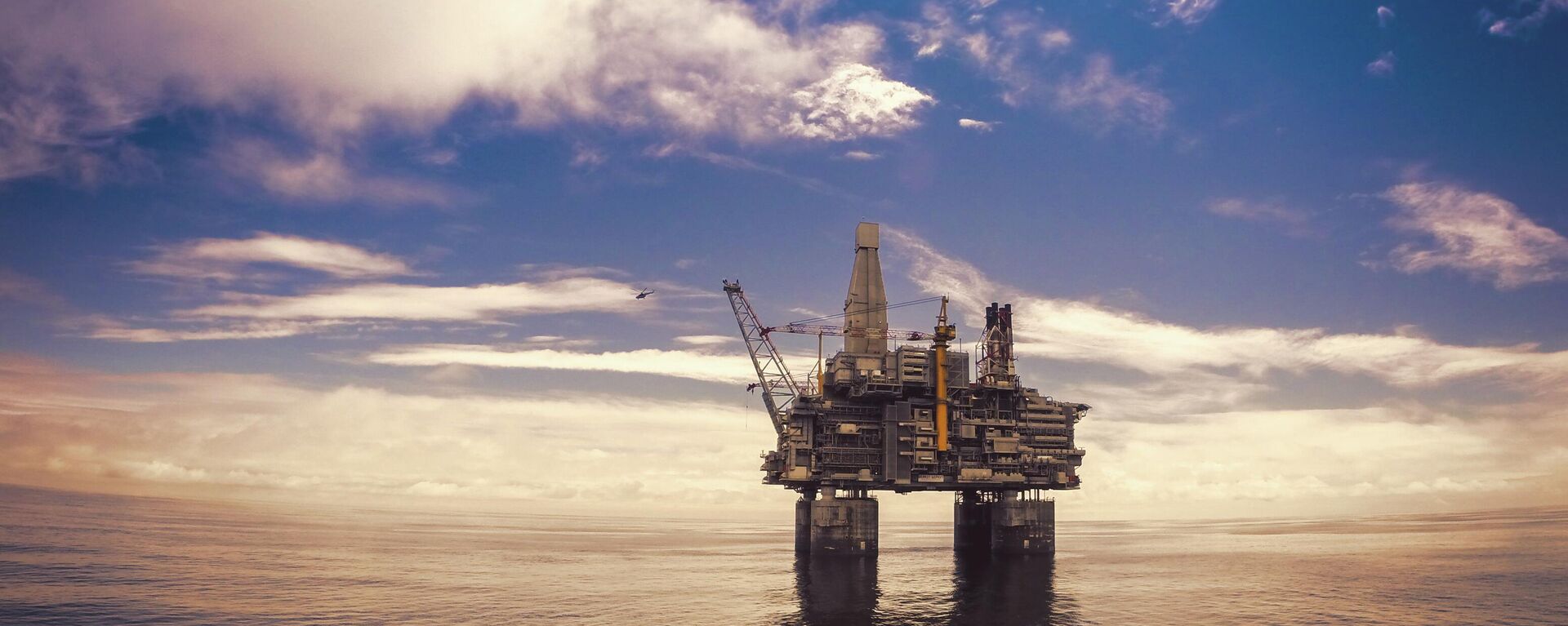
22 December 2022, 11:45 GMT
How Western Sanctions Accelerated Oil Prices in 2022
As oil prices and inflation continued to increase in the beginning of 2022, a new factor added insult to injury. Following the beginning of Moscow's special operation in Ukraine on February 24, the G7 and their allies resorted to sweeping sanctions against Russia's banking, logistics and energy industry, to name but a few, starting from March.
While the US was the first to completely halt the importation of oil from Russia, the UK and EU started to phase out their purchases of Russian crude (their ban came into force in full on December 5, 2022).
The problem is that Russia remains the third-largest oil producer in the world and the second-largest exporter of the commodity. And when it comes to all oil products, Russia is the first exporter.
The nation's output in January 2022 amounted to 11.3 million barrels per day. About 60% of Russia’s crude exports went to the EU, representing roughly a third of the bloc's member states oil imports.
The International Energy Agency (IEA) estimated at the time that by May 2022, three million barrels per day of Russian oil output, representing almost 3% of the world’s production, could be removed from the global oil market.
On February 28, Brent crude went through the roof and mounted over $100 per barrel. On March 8, 2022, Brent futures settled near $128 a barrel in London, while WTI gained 3.6% to settle over $123.
As global oil prices fluctuated around $100 per barrel, inflation turned into an acute global problem in May. An analysis of inflation across 111 countries carried out by Deutsche Bank at the time indicated that US rates (8.6%) were in the middle of the pack. The median rate of 7.9% year-over-year inflation more than doubled from 3.0% one year ago, largely due to spiking energy prices. May rates indicated that France's year-on-year inflation reached 5.8%, Germany's rose to 7.9%, the Netherlands’ mounted to 8.8%, while in the Baltic states it soared as high as 20%.
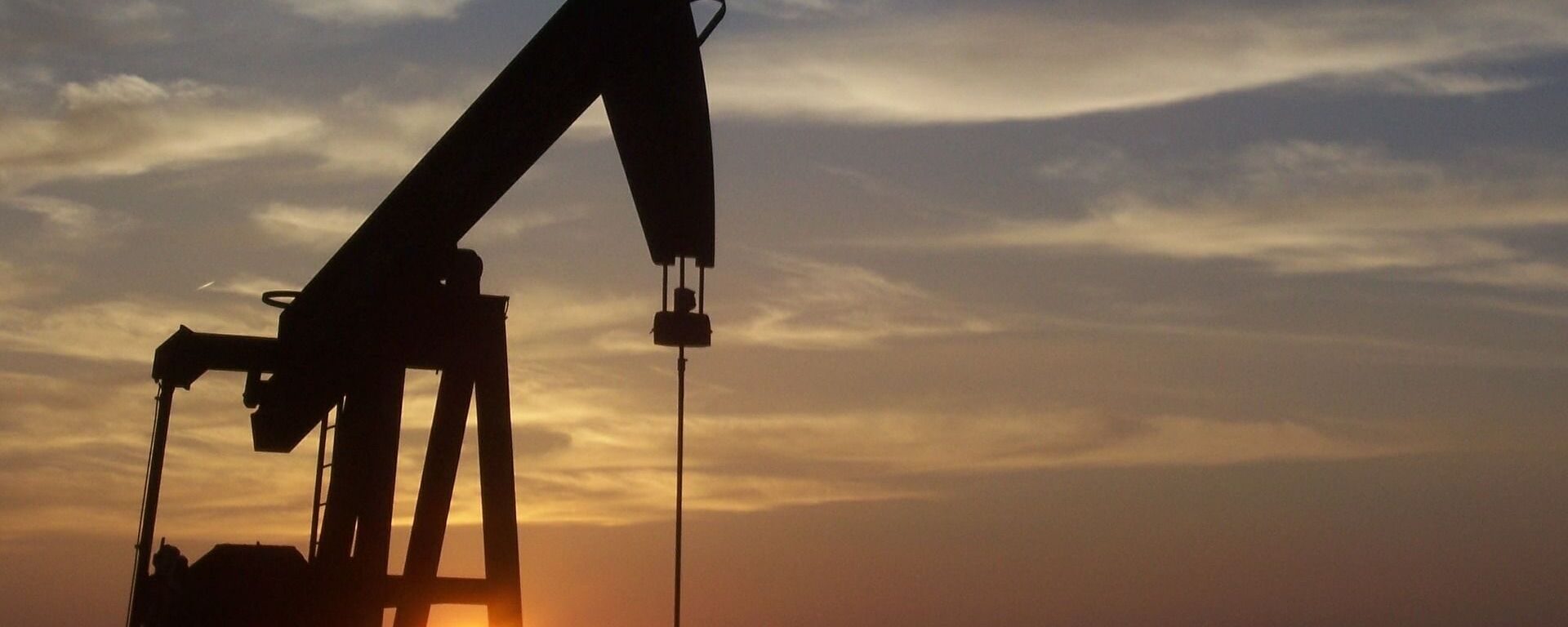
23 December 2022, 04:10 GMT
In March, the US Federal Reserve started gradual interest hikes in order to attempt to tame inflation. The European Central Bank (ECB) followed suit in July, raising the key interest rate for the first time in 11 years. For its part, the Bank of England (BoE) resorted to the measure since the beginning of the year.
However, aggressive rate hikes by nation-issuers of major reserve currencies backfired on vulnerable
economic zones of developing countries, according to the International Monetary Fund (IMF). Prior to the move, Kristalina Georgieva, managing director of the IMF, warned the Davos Summit in January 2022 that US interest rate hikes could cripple the global economy. She noted at the time that countries with higher levels of dollar-denominated debt would be hurt the most, adding that two-thirds of low-income countries were either in "debt distress" or at risk of falling into it.
On the other hand, economic experts warned that the US and its western allies were running the risk of plunging themselves into recession, as interest hikes have increased borrowing rates and slowed down the industrialized economies.
The US entered a technical recession earlier this year. The European Commission admitted in November that the Eurozone and most EU countries would face recession in the last quarter of 2022. Meanwhile, the UK's economy contracted a revised 0.3% against the 0.2% decline initially estimated from July to September, according to the Office for National Statistics' latest data.
In order to reshuffle the economic environment,
the G7 came up with the price-capping scheme targeting Russia in June 2022.
The plan prohibited EU and UK companies from transporting or insuring ships carrying crude oil from Russia to anywhere in the world – unless the buyer pays a price below the proposed price cap. The grand design was meant to kill two birds with one stone: first, to deal a heavy blow to Moscow’s finances; second, to reduce inflationary pressure.
"A price cap on Russian oil is one of our most powerful tools to address the pain that Americans and families across the world are feeling at the gas pump and the grocery store right now," US Secretary of the Treasury Janet Yellen asserted to reporters ahead of the G20 foreign ministers' July meeting in Bali.
On December 5,
a $60 price cap on Russian oil came into force. Starting from February, Russia's petroleum products will also be subjected to the price cap. Additional conditions secured by industrialized nations include a mechanism to reconsider the price cap limits every two months. Any resetting of the cap should leave it at least 5% below average market rates.
Russia signaled that it will not sell oil to countries implementing the measure and is ready to slash the production of crude. Moscow warned against implementing practices which undermine free market rules and send the global economy into disarray. Simultaneously, the nation
resorted to beefing up its own tanker fleet, instrumentalizing its own insurance companies and shifting to national currencies in oil and gas settlements.

9 December 2022, 12:30 GMT
Oil Prices Have Fallen, For Now
By late November oil prices plummeted to $83 (Brent) and $77 (WTI) per barrel due to a number of reasons, as Dr. Gal Luft, co-director of the Institute for the Analysis of Global Security and a senior adviser to the United States Energy Security Council,
told Sputnik at the time.
First: is the slowdown in the global economy and reduced global demand amid the expectation that China was not going to end its zero-COVID policy any time soon.
Second: countries have completed their adjustments to the new geopolitical situation by storing oil in strategic reserves while traders, shippers and paymasters have made their adjustments to the sanctions and are now more able to ship crude at ease.
Third: shippers have more or less completed their end-of-year pre-holiday shopping season purchases of manufactured goods and now there is a typical slowdown in international shipping.
Fourth: when it comes to the US, American refiners were pressured to lower profits and limit exports causing a surplus in the domestic market.
Nonetheless, the expert warned that Brent and WTI benchmark could once again go above $100 if Russia, the second largest oil exporter, will walk the talk and reduce oil output, and if China accelerates its economic development full throttle after easing COVID-related restrictions.
Earlier, the club of 23 oil producers met on December 4 to discuss the course on output policy. They agreed to stick to the existing policy of reducing oil production by two million barrels per day until the end of 2022. The group's next meeting in February 2023 could result in further corrections to the energy market.
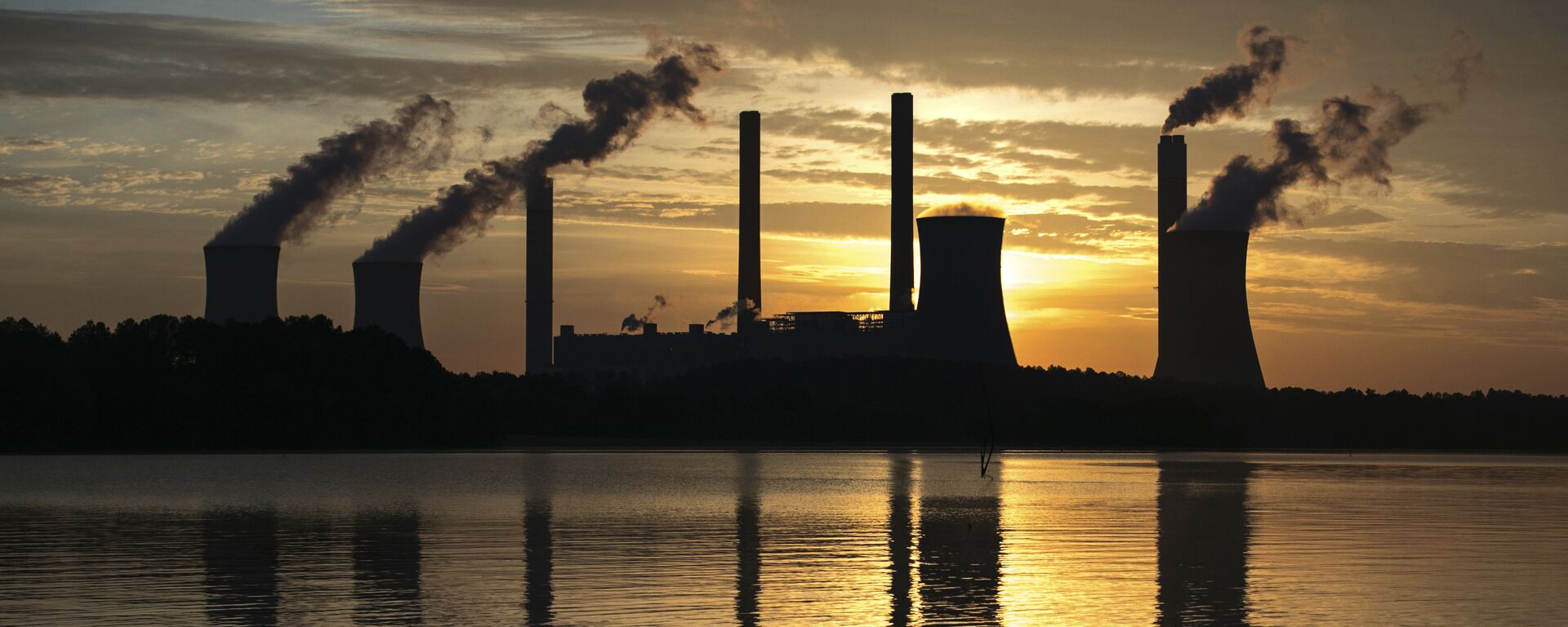
20 December 2022, 14:34 GMT
Anti-Russia sanctions and further hits to global supply chains are likely to result in de-globalization of the world's economy, western experts believe. They project that the world economy is set to split into blocs in the future with each of them becoming more self-reliant.
Less economic interconnection will result in domestic companies and industries gaining more power and greater protection from their respective states. All in all, the global economy of the 2020s will look quite different from the world of the previous three decades, according to the experts.
While they are pinning the blame for the new trend on China, Russia, Brexit, ex-US President Donald Trump, Turkey's Recep Tayyip Erdoğan and Hungary's Victor Orbán, the US and the EU appear to be at the forefront of the de-globalization process. In addition to trying to cut Russia off from the world economy, Washington and Brussels have recently resorted to outright protectionist measures, including the US' Inflation Reduction Act (IRA),
the EU's carbon border tax, and bans on semiconductor technologies for Chinese companies.
While Russia is re-orienting its supply and shipment routes, the western economy is slowing down. Time will tell how the global economic decoupling will pan out.
